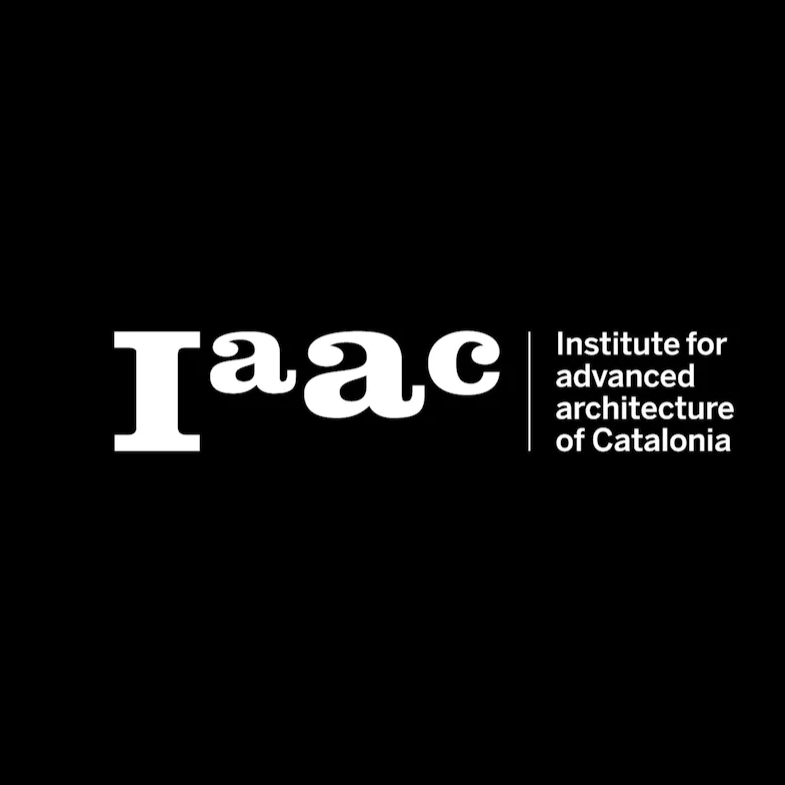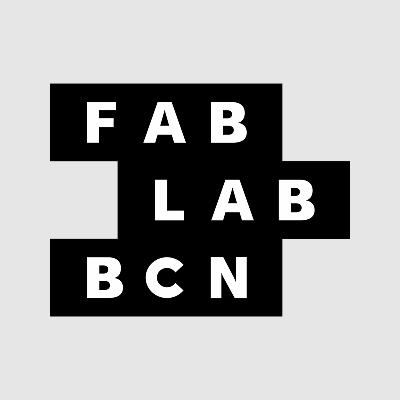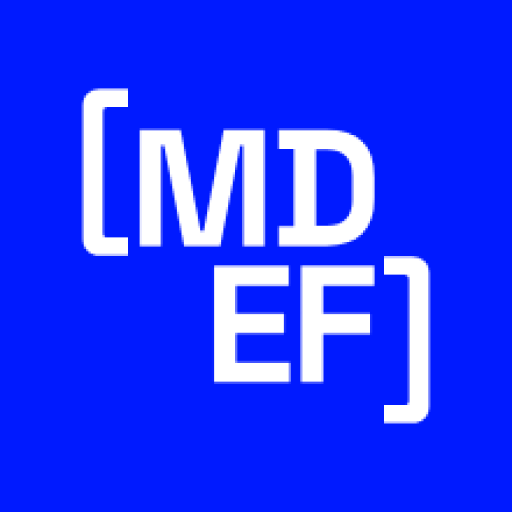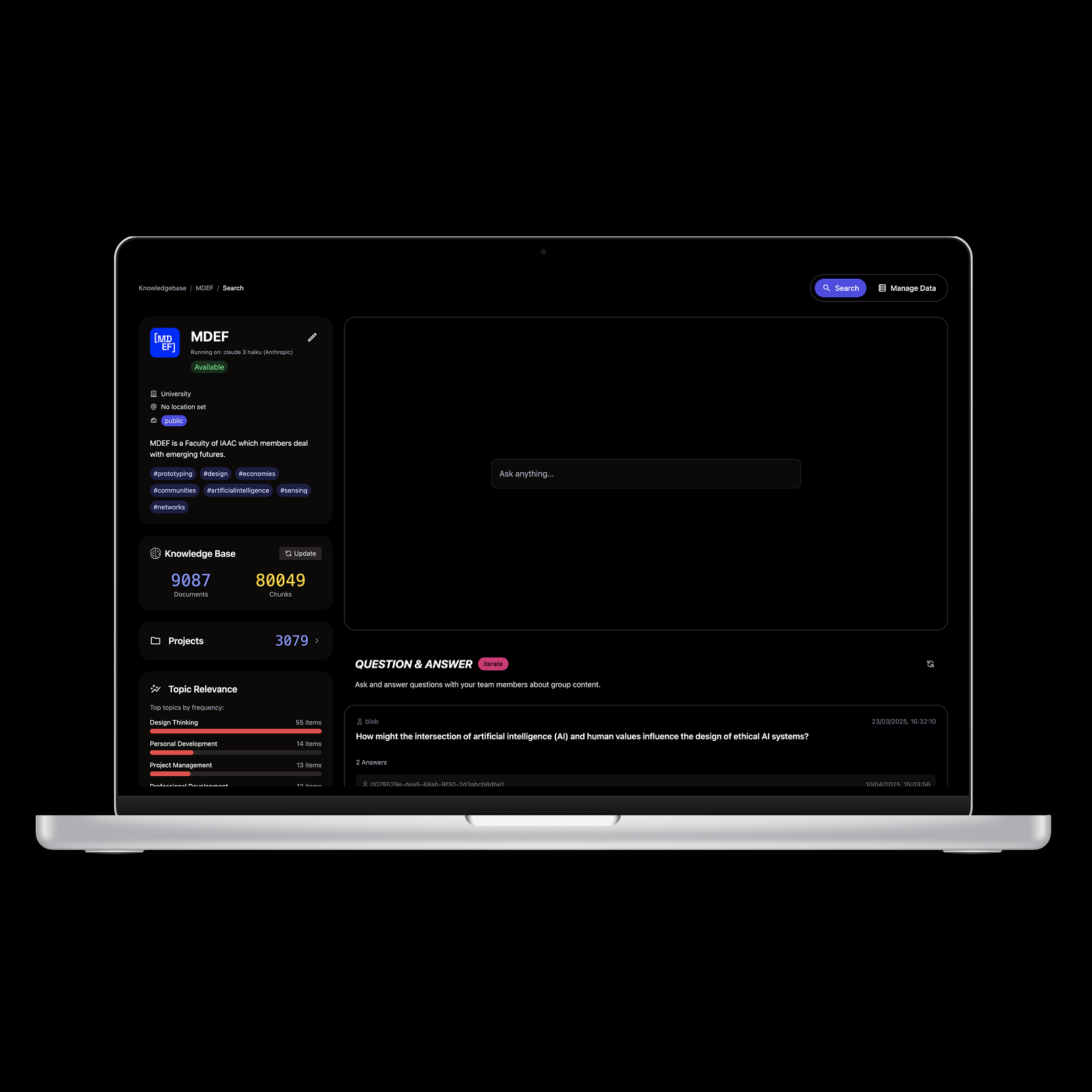OATFLAKE
Oatflake is an open-source backend app that enables communities to create their own private intelligence or community intelligence server. The project aims to challenge traditional, centralized AI development approaches by prioritizing community governance, data ownership, and energy efficiency.
Collaborators

Tim Colishaw
Mentor & Advisor

IAAC
Hosting Institution

Fablab
Testing Community

MDEF Students
Testing Community

Vision
The concept and goals behind the OATFLAKE project
The vision behind Oatflake is to create a decentralized, community-driven intelligence ecosystem where communities can create, share, and exchange knowledge in a sustainable and transparent manner. By empowering communities to take ownership of their AI development, Oatflake seeks to promote a more inclusive and participatory approach to AI.
Key Objectives
- Create a decentralized AI development platform: Develop an open-source backend app that enables communities to create their own private intelligence or community intelligence server.
- Promote community governance: Empower communities to take ownership of their AI development, data, and decision-making processes.
- Ensure data ownership and control: Allow communities to maintain control over their data and ensure that it is not exploited or misused.
- Reduce energy consumption: Design the system to be energy-efficient and minimize its carbon footprint.
- Promote transparency and accountability: Ensure that the system is transparent, accountable, and inclusive in its decision-making processes.
Architecture
Technical design and implementation
Oatflake's architecture is designed to be modular, adaptable, and energy-efficient. The system leverages the LangChain framework and HTML, JavaScript, and Python to create a decentralized network that can run on various devices, including MacBook, Windows, and Raspberry Pi. The minimum hardware requirements are 8GB CPU, and the system can also use Open Router as an API.
Core Components
- Local interface
- Remote accessible API endpoints for community use
- RAG setup modular with Ollama and Open Router
- Knowledge Processing with Langchain
- Orchestration Service: Automated resource management
Data Flow Architecture
Data Sources
(External Systems)Ingest Layer
(Data Acquisition & Validation)Distribution Engine
(Event-based Routing)Processing Clusters
(Parallel Computation)Query Interface
(Client Applications)Applications
Use cases and implementation examples
Oatflake has been tested and validated through workshops and theoretical concept creation for different scenarios, including:
- Community-driven research: Oatflake enables communities to create their own intelligence server, allowing them to conduct research and analysis in a decentralized and sustainable manner.
- Local data analysis: The system allows communities to analyze and process data locally, reducing the need for centralized data processing and promoting data ownership.
- Knowledge sharing: Oatflake facilitates knowledge sharing and exchange between communities, enabling them to collaborate and learn from each other.
Insights
Key learnings from project development
Through the development and testing of Oatflake, several key insights have emerged:
Decentralized AI development is feasible
Oatflake demonstrates that decentralized AI development is possible and can be achieved through a community-driven approach.
Energy efficiency is crucial
The system's focus on energy efficiency highlights the importance of sustainable AI development and the need to reduce energy consumption in AI applications.
Community governance is essential
Oatflake shows that community governance is essential for promoting transparency, accountability, and inclusivity in AI development.